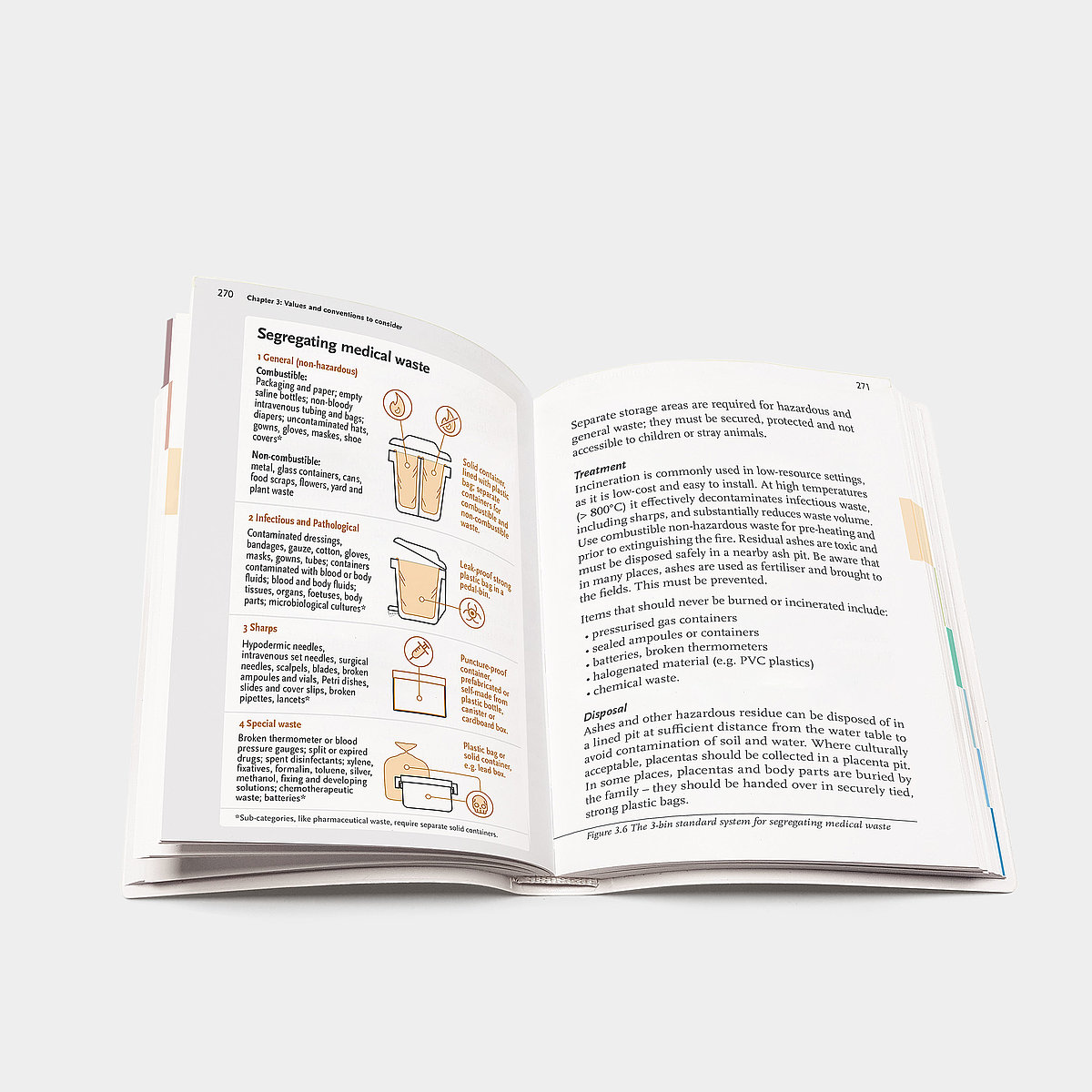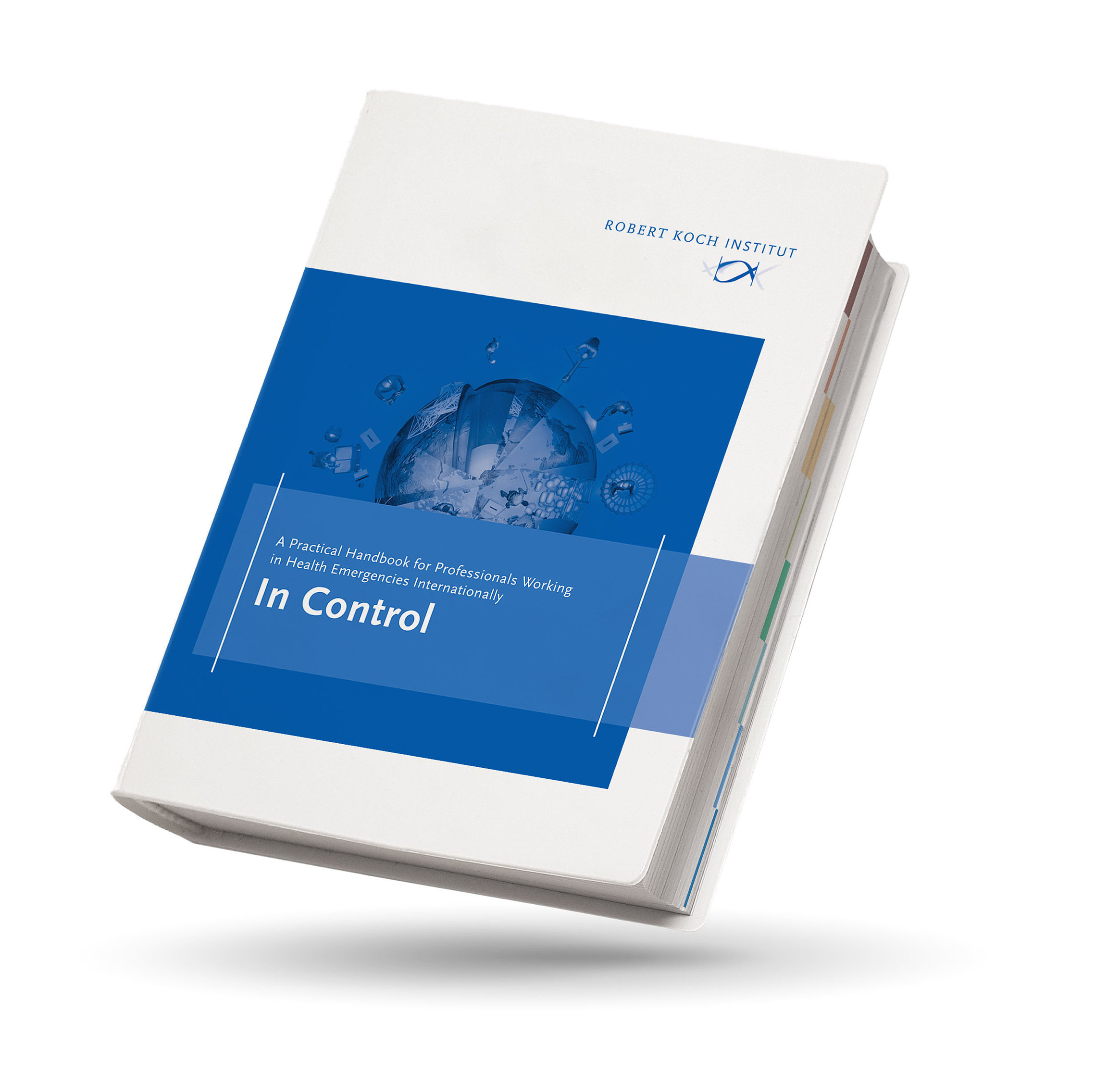Disclaimer: For English version see below
Datenschutzerklärung
Verantwortlicher gemäß Art. 4 Nr. 7 EU Datenschutz-Grundverordnung (DSGVO) und Bundesdatenschutzgesetz (BDSG):
Robert Koch-Institut
Nordufer 20
13353 Berlin
vertreten durch den Präsidenten Prof. Dr. L. H. Wieler
Kontakt:
Robert Koch-Institut
Zentrum für Internationalen Gesundheitsschutz (ZIG)
Nordufer 20
13353 Berlin
E-Mail: incontrol-handbook@rki.de
Homepage: www.rki.de
Datenschutzbeauftragter des Robert Koch-Institutes
Dr. Jörg Lekschas
Telefon: 030 187543594
E-Mail: Kontaktformular
Hosting:
Netzreform GmbH
www.netzreform.de
Betrieb:
Zentrum für Internationalen Gesundheitsschutz (ZIG)
Designkonzeption:
Ulf Seißenschmidt
Content Management System:
Die Realisierung erfolgt mit dem TYPO3 CMS.
Allgemeines zur Datenverarbeitung
1. Umfang der Verarbeitung personenbezogener Daten
Der Schutz personenbezogener Daten ist dem Robert Koch-Institut (RKI) ein sehr wichtiges Anliegen. Das Robert Koch-Institut unterliegt als Bundesbehörde den Bestimmungen der EU Datenschutz-Grundverordnung (DSGVO) und des Bundesdatenschutzgesetzes (BDSG). Die Nutzung des Webangebotes www.incontrol-handbook.org ist grundsätzlich ohne Bekanntgabe personenbezogener Daten möglich. Bei der Nutzung von Kontaktformularen und Beantwortung des Fragebogens werden personenbezogene Daten verarbeitet. Eine automatisierte Entscheidungsfindung (sog. Profiling) findet nicht statt.
Personenbezogene Daten sind Informationen, die sich auf eine identifizierte oder identifizierbare Person beziehen. Hierunter fallen Angaben, die Rückschlüsse auf Ihre Identität ermöglichen. Weitere Definitionen der verwendeten Begriffe (z.B.“Verarbeitung”) finden Sie in Art. 4 DSGVO.
Da durch neue Technologien und die ständige Weiterentwicklung dieser Webseite Änderungen an dieser Datenschutzerklärung vorgenommen werden können, empfehlen wir Ihnen, sich die Datenschutzerklärung in regelmäßigen Abständen wieder durchzulesen.
2. Speicherdauer
Die Speicherung erfolgt im Einklang mit der Richtlinie für das Bearbeiten und Verwaltung von Schriftgut in Bundesministerien, die im RKI als Registraturrichtlinie (RegR) umgesetzt ist.
Technische Bereitstellung der Webseite, Statistik und Cookies
Diese Internetseite wird vom Dienstleiser Netzreform GmbH gehostet.
Für die Verwendung der interaktiven PDF werden im Rahmen der Nutzung der Website folgende Daten des Nutzers, wie hier beschrieben, erhoben: www.netzreform.de/datenschutz.html
Server-Logfiles speichern die besuchte Website, Datum und Uhrzeit zum Zeitpunkt des Zugriffes, Menge der gesendeten Daten in Byte, Quelle/Verweis, von welchem Sie auf die Seite gelangten
Verwendeter Browser, Verwendetes Betriebssystem, Verwendete IP-Adresse. Die Datenverarbeitung der Zugriffsdaten ist erforderlich, um den Besuch der Website zu ermöglichen und um die dauerhafte Funktionsfähigkeit und Sicherheit der Systeme zu gewährleisten. Eine Weitergabe oder anderweitige Verwendung der Daten findet nicht statt.
Die Server für die gehostete Website steht in Deutschland. Es werden keinen analytischen Tools verwendet.
Für die Nutzung der von Netzreform gehosteten RKI Website des Handbuches wird der Nutzer gebeten einen anonymen Fragebogen mit der Erhebung folgender Daten zu beantworten: Kategorie (z.B. NGO, Behörde), Zweck der Verwendung, Ursprung des Interesses an der kostenlosen Publikation und über wen der Nutzer von dem Produkt erfahren hat. Eine Angabe der E-Mail ist freiwillig. Ebenso wie ein generelles Feedback zu den Inhalten des Handbuches.
Die inhaltliche und statistische Auswertung dieser Daten soll im Zuge der Qualitätssicherung der Verbesserung des Handbuches für die nachfolgende Auflage dienen, sowie der Entscheidung dienen, in welche weiteren Sprachen das Buch übersetzt werden sollte.
Elektronische Korrespondenz
Das Internetangebot www.incontrol-handbook.org bietet die Möglichkeit, mit den Herausgebern des Handbuches Kontakt aufzunehmen, Mitteilungen abzusetzen oder Anfragen zu stellen.
In der Regel verwenden wir hierfür Formulare. Die Pflichtfelder der Formulare wurden aus Gründen des Datenschutzes auf das zur Beantwortung von Anfragen notwendige Mindestmaß begrenzt. Die von Ihnen dabei übermittelten personenbezogenen Daten werden ausschließlich dazu verwendet, um Ihre Anfrage zu beantworten, den Zugang für interne Bereiche zu ermöglichen. Sie werden nicht an Dritte weitergegeben und nicht für sonstige eigene Zwecke genutzt. Ihre Angaben werden durch eine „Secure Socket Layer“-Verbindung (SSL) verschlüsselt übertragen, so dass Unbefugte diese nicht einsehen können (https-Verbindung).
Kontaktformulare & anonymer Fragebogen
In E-Mail-Kontaktformularen erheben wir folgende Datenkategorien:
Pflichtfeld und automatisch erhobene Daten: Vorname und Nachname, E-Mail, Betreff, Nachrichtentext, Datum und Uhrzeit des Formularversands
Freiwillige Angabe: Organisation
Bevor die PDF heruntergeladen werden kann, bitten wir um die Beantwortung eines anonymen Fragebogens mit der Erhebung folgender Daten: Kategorie (z.B. NGO, Behörde), Zweck der Verwendung, Ursprung des Interesses an der kostenlosen Publikation, über wen der Nutzer von dem Produkt erfahren hat. Eine Angabe der E-Mail ist freiwillig. Ebenso wie ein generelles Feedback zu den Inhalten des Handbuches.
Die Aufbewahrung von Anfragen in elektronischer Form erfolgt gemäß den für die Aufbewahrung von Schriftgut geltenden Fristen der Registraturrichtlinie des RKI – basierend auf der Registraturrichtlinie für das Bearbeiten und Verwalten von Schriftgut in Bundesministerien, welche die Gemeinsame Geschäftsordnung der Bundesministerien (GGO) ergänzt.
Die Verarbeitung Ihrer Daten beruht auf Ihrer Einwilligung, Vertrag (bei Bestellungen) und den im öffentlichen Interesse liegenden Aufgaben des RKI (Art. 6 Abs.1lit.a, lit. b, lit. e DSGVO i.V.m. § 2, § 4 BGA-NachfG), insbesondere der Information der Öffentlichkeit. Sie können Ihre Einwilligung zur weiteren Verarbeitung jederzeit mit Wirkung für die Zukunft widerrufen unter den oben angegebenen Kontaktdaten. Stehen der Löschung Aufbewahrungsfristen entgegen, werden die Daten in der Verarbeitung beschränkt. Weitere Informationen Weitere Informationen finden Sie im Abschnitt „Ihre Datenschutzrechte“.
Ihre Datenschutzrechte (Rechte der betroffenen Person)
Soweit wir personenbezogene Daten von Ihnen verarbeiten, stehen Ihnen folgende Datenschutzrechte zu:
- das Recht, jederzeit Auskunft über die Verarbeitung Ihrer personenbezogenen Daten zu erhalten (Art. 15 DSGVO),
- das Recht auf Berichtigung unrichtiger Daten oder Vervollständigung lückenhafter Daten (Art. 16 DSGVO),
- das Recht, Daten nach den gesetzlichen Vorgaben löschen oder in der Verarbeitung einschränken zu lassen (z.B. bei Widerruf Ihrer Einwilligung oder unrechtmäßiger Verarbeitung) (Art. 17, 18 DSGVO),
- das Recht, bei einer auf Einwilligung beruhenden Datenverarbeitung Ihre Einwilligung jederzeit mit Wirkung für die Zukunft zu widerrufen (Art. 7 Abs. 3 DSGVO),
- das Recht auf Datenübertragbarkeit (Sie können eine Übersicht Ihrer Daten in einem elektronischen Format zur Verfügung gestellt bekommen) (Art. 20 DSGVO),
- das Recht auf Widerspruch gegen die Datenverarbeitung, die aus Gründen eines berechtigten Interesses des RKI, für die Wahrnehmung von öffentlichen Aufgaben oder in Ausübung öffentlicher Gewalt erfolgt (Art. 21 DSGVO),
- das Recht, den Datenschutzbeauftragten des RKI Kontaktformular zu kontaktieren und Ihr Anliegen vorzubringen (Art. 38 Abs. 4 DSGVO) und
- das Recht, sich bei der zuständigen Aufsichtsbehörde für den Datenschutz zu beschweren, (Die Bundesbeauftragte für Datenschutz und Informationssicherheit, Husarenstr. 30 - 53117 Bonn, +49 (0)228-997799-0, E-Mail: poststelle@bfdi.bund.de, www.bfdi.bund.de )(Art. 77 Abs. 1 DSGVO).
Inhalte anderweitiger Anbieter
Die Internetseite www. incontrol-handbook.org enthält Links zu anderen Websites. Bei allen Seiten wurden Links zu Inhalten von Internetseiten Dritter ("fremden Inhalten") durch das Robert Koch-Institut (RKI) (Redaktion) nach bestem Wissen und unter Beachtung größtmöglicher Sorgfalt erstellt. Sie vermitteln lediglich den Zugang zu "fremden Inhalten". Dabei wurde auf die Vertrauenswürdigkeit dritter Anbieter und die Fehlerfreiheit sowie Rechtmäßigkeit der "fremden Inhalte" besonders geachtet.
Da jedoch der Inhalt von Internetseiten dynamisch ist und sich jederzeit ändern kann, ist eine stetige Einzelfallprüfung sämtlicher Inhalte, auf die ein Link erstellt wurde, nicht in jedem Fall möglich. Das RKI macht sich deshalb den Inhalt von Internetseiten Dritter, die mit der eigenen Internetpräsenz verlinkt sind, insoweit ausdrücklich nicht zu Eigen. Für Schäden und Rechtsverletzungen aus der Nutzung oder Nichtnutzung "fremder Inhalte" haftet ausschließlich der jeweilige Anbieter der Seite, auf die verwiesen wurde. Verpflichtungen zur Entfernung oder Sperrung der Nutzung von Informationen nach den allgemeinen Gesetzen bleiben hiervon unberührt. Eine diesbezügliche Haftung ist jedoch erst ab dem Zeitpunkt der Kenntnis einer konkreten Rechtsverletzung möglich. Bei Bekanntwerden von entsprechenden Rechtsverletzungen werden wir diese Inhalte umgehend entfernen.
Das RKI kontrolliert nicht und hat keinen Einfluss darauf, dass deren Betreiber die Datenschutzbestimmungen einhalten.
Eigene Inhalte
Soweit die auf diesen Seiten eingestellten Inhalte Rechtsvorschriften, amtliche Hinweise, Empfehlungen oder Auskünfte enthalten, sind sie nach bestem Wissen und unter Beachtung größtmöglicher Sorgfalt erstellt. Bei Unstimmigkeiten gilt jedoch ausschließlich die aktuelle amtliche Fassung, wie sie im dafür vorgesehenen amtlichen Verkündungsorgan veröffentlicht ist. Etwaige rechtliche Hinweise, Empfehlungen und Auskünfte sind unverbindlich. Eine Rechtsberatung findet nicht statt.
Das Robert Koch-Institut haftet nicht für Schäden bzw. Rechtsverletzungen, die durch die Nutzung oder Nichtnutzung angebotener Informationen entstehen.
Fehlermeldungen
Die Redaktion bittet die Nutzer von www. incontrol-handbook.org, auf rechtswidrige oder fehlerhafte Inhalte Dritter, zu denen in der Internetpräsenz ein Link unterhalten wird, aufmerksam zu machen. Ebenso wird um eine Nachricht unter der angegebenen Kontaktadresse gebeten, wenn eigene Inhalte nicht fehlerfrei, aktuell, vollständig oder verständlich sind.
Urheberrecht
Das Copyright für Texte und Bilder liegt bei eigenen Inhalten beim Robert Koch-Institut. Auf dem Portal zur Verfügung gestellte Texte, Textteile, Grafiken, Tabellen oder Bildmaterialien dürfen, soweit diese urheberrechtlich geschützt sind, ohne vorherige Zustimmung des Robert Koch-Instituts nicht vervielfältigt, nicht verbreitet und nicht ausgestellt werden.
Kontakt zur Internetredaktion: Kontaktformular Webmaster
English Version:
Data Privacy Statement
Controller in accordance with Article 4.7 of the EU General Data Protection Regulation (GDPR) and the Federal Data Protection Act (BDSG):
Robert Koch Institute
Nordufer 20
13353 Berlin
Represented by its President, Prof. Dr. L. H. Wieler
Contact:
Robert Koch Institute
Centre for International Health Protection (ZIG)
Nordufer 20
13353 Berlin
Telephone: 030 18754 0
Fax: 030 18754 2328
Email: incontrol-handbook@rki.de
Homepage: www.rki.de
Data Protection Officer
Dr. Jörg Lekschas
Telephone: 030 187543594
Email: contact form
Hosting:
Netzreform GmbH
www.netzreform.de
Operation:
Centre for International Health Protection (ZIG)
Design concept:
Ulf Seißenschmidt
Content Management System:
The realization takes place with TYPO3 CMS.
General Information on Data Processing
1. Scope of the processing of personal data
The protection of personal data is a very important concern for the Robert Koch Institute (RKI). The Robert Koch Institute is a federal authority and as such subject to the provisions of the EU General Data Protection Regulation (GDPR) and the Federal Data Protection Act (BDSG). The use of the RKI website (www.incontrol-handbook.org) is, as a matter of principle, possible without disclosing any personal data. When using contact forms, newsletters, internal areas and in the event of telephone contacts to RKI, personal data are processed. There is no automated decision making (so-called profiling).
Personal data are information which are associated with an identified or identifiable natural person. This includes data which allow conclusions concerning your identity. Further definitions of the terms used (eg “processing”) can be found in Article 4 GDPR.
Since new technologies and the permanent further development of this website can lead to amendments to this Data Privacy Statement, we recommend that you re-read the Data Privacy Statement at regular intervals.
2. Duration of storage
The storage is carried out in conformity with the directive for the processing and administration of records in federal German ministries which is implemented within RKI as the registry directive (RegR).
Technical Provision of the Website, Statistics and Cookies
This website is hosted by the service provider Netzreform GmbH.
For the use of the interactive PDF, the following data of the user is collected in the context of the use of the website, as described here: https://www.netzreform.de/datenschutz.html.
Server log files store the website visited, date and time at the time of access, amount of data sent in bytes, source/reference from which you came to the page, Browser used, Operating system used, IP address used. Data processing of the access data is necessary to enable the visit of the website and to ensure the long-term functionality and security of the systems. The data is not passed on or used in any other way.
The server for the hosted website is located in Germany. No analytical tools are used.
For the use of the RKI website of the handbook hosted by Netzreform, the user is asked to answer an anonymous questionnaire collecting the following data: category (e.g. NGO, public authority), purpose of use, origin of interest in the free publication and through whom the user learned about the product. An indication of the e-mail is optional. So is a general feedback on the contents of the handbook.
The content and statistical analysis of these data will be used in the course of quality assurance to improve the handbook for the following edition, as well as to decide into which other languages the book should be translated.
Electronic correspondence
The website www.incontrol-handbook.org gives you the opportunity to contact editor of the handbook, transmit information or make inquiries.
As a rule, we use forms for these purposes. For reasons of data privacy the compulsory fields of the forms are restricted to the bare minimum required for answering enquiries. The personal data transmitted by you are used exclusively in order to answer your enquiry, allow access to internal areas and / or send you the requested newsletter. They are not shared with third parties and are not used for any other particular purposes. Your data are transmitted through a Secure Socket Layer connection (SSL) in an encrypted form, so that they cannot be seen by unauthorised persons (https connection).
Contact forms & anonymous questionnaire
In email contact forms we collect the following data categories:
Compulsory field and automatically collected data: first name and name, email, subject, message, date and time as registered while mailing the form
Voluntary data: organisation
To download the PDF the user is asked to answer an anonymous questionnaire collecting the following data: category (e.g. NGO, public authority), purpose of use, origin of interest in the free publication and through whom the user learned about the product. An indication of the e-mail is optional. So is a general feedback on the contents of the handbook.
The storage of enquiries in electronic form is carried out in accordance with the deadlines applying to the storage of records of the registry directive of RKI – based on the registry directive for the processing and administration of records in federal ministries which supplements the joint rules of the procedure of the federal ministries (GGO).
The processing of your data is based on your consent, contract (in the case of orders) and the duties of RKI in the public interest (Article 6 para 1 lit. a, lit. b, lit. e GDPR in conjunction with § 2, § 4 BGA Succession Act), more particularly the information of the public. You can withdraw your consent to any further processing at any time with effect from the future by using the contact data above. If the data cannot be deleted due to storage periods, the data will be restricted in terms of processing. Further information can be found in the section “Your Data Privacy Rights”.
Your Data Privacy Rights (rights of data subjects)
Insofar as we process your personal data, you have the following data privacy rights:
- The right to obtain information at any time about the processing of your personal data (Article 15 GDPR),
- The right to rectify inaccurate data or complete incomplete data (Article 16 GDPR),
- The right to have data deleted or restrict their processing in accordance with the statutory provisions (eg in the event of withdrawal of your consent or unlawful processing) (Article 17, 18 GDPR),
- The right to withdraw, in the event of data processing based on consent, such consent with effect in the future (Article 7 para 3 GDPR),
- The right to data portability (an overview of your data may be made available in an electronic format to you) (Article 20 GDPR),
- The right to object to data processing which is carried out by RKI for reasons of a legitimate interest of RKI to exercise public duties or the exercise of official authority (Article 21 GDPR),
- The right to contact the Data Protection Officer of RKI (contact form) and submit your requests (Article 38 para 4 GDPR) and
- The right to complain to the competent supervisory authority for data protection (the Federal Officer for Data Protection and Freedom of Information, Husarenstr. 30 - 53117 Bonn, +49 (0)228-997799-0, email: poststelle@bfdi.bund.de, http://www.bfdi.bund.de) (Article 57 para 1 lit. f GDPR).
Contents of other providers
The web pages www. incontrol-handbook.org contain links to other websites. On all pages, links to contents of web pages of third parties (“third party content”) have been created by the Robert Koch Institute (RKI) (editorial office) to the best of its knowledge and belief and taking into account the highest possible care. They merely provide access to “third party content”. In this connection the trustworthiness of third party providers and the accuracy as well as lawfulness of the “third party content” has been given special attention.
However, since the content of web pages is dynamic and can change at all times, a permanent individual review of all contents provided with a link is not possible in each case. RKI does, therefore, expressly not appropriate the content of web pages of third parties which are linked with its own internet presence. The respective provider of the page to which a reference is made is exclusively liable for damage and legal infringements from the use or non-use of “third party content”. Any obligations to remove or block the use of information in accordance with general legislation is not affected. A corresponding liability is, however, only possible after knowledge has been obtained with respect to a concrete legal infringement. If such legal infringements become known, we will immediately remove such contents.
RKI does not control and has no influence on its operators complying with the data privacy provisions.
Own contents
Insofar as the contents published on these pages include legal provisions, public notifications, recommendations or information, they have been created to the best of our knowledge and withthe greatest possible care. In the event of discrepancies, the current official version applies, however, exclusively in the way it has been published in the public promulgating organ provided for that purpose. Any legal indications, recommendations and information are non-binding. There is no legal counselling.
The Robert Koch Institute is not liable for damage or legal infringements arising out of the use or a failure to use the information provided.
Error Notifications
The editorial office kindly asks the users of www. incontrol-handbook.org to draw its attention to illegal or inaccurate contents of third parties to which a link is maintained in the internet presence. In the same way we kindly ask you to inform us under the stated contact address if our own contents are not error-free, up to date, complete or comprehensible.
Copyright
The copyright for text and pictures lies with the Robert Koch Institute in the event of own contents. Texts, parts of texts, illustrations, tables or picture materials made available on the portal may not be duplicated, disseminated and exhibited without the prior consent of the Robert Koch Institute to the extent that they are protected by copyright.
Contact to the internet editorial office: contact form Webmaster










